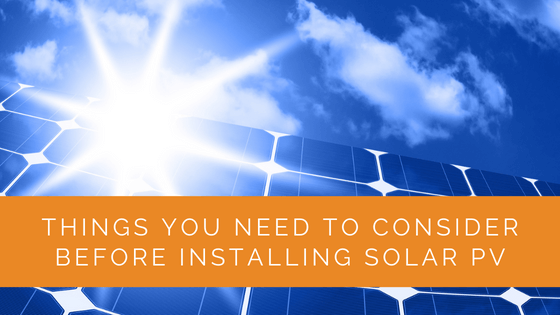Over the past few years, solar power technology has seen some incredible advancements. Many UK households are now opting for solar energy systems as a way to cut down on their electricity costs and reduce their environmental impact. By installing solar PV panels, you can generate renewable energy to power your home or business while also contributing to a greener planet.
However, before you take the plunge and install a solar panel system, there are several important factors you need to consider. This guide will walk you through the key considerations you should keep in mind before installing your solar panel system.
Contents
- 1 Key Takeaways
- 2 Key Considerations Before Solar Panel Installation
- 2.1 Roof Strength
- 2.2 Types of Solar Panels
- 2.3 Inverter Requirements
- 2.4 Energy Use
- 2.5 Financial Incentives
- 2.6 Assessing Your Needs
- 2.7 Solar Battery
- 2.8 Professional Installer
- 3 Case Study: Comprehensive Pre-Installation Assessment for Solar PV System
- 3.1 Background
- 3.2 Project Overview
- 3.3 Implementation
- 3.4 Results
- 3.5 Summary
- 4 Expert Insights From Our Solar Panel Installers About Key Considerations Before Installing Solar PV
- 5 Discover the Power of Solar with Solar Panels Network
- 6 Wrapping Up
- 6.0.1 About the Author
Key Takeaways
- Before installing solar panels, check the strength of your roof to ensure it can support the weight of the panels, and reinforce it if necessary.
- Select the appropriate type of solar panels, as their quality directly affects the efficiency and lifespan of your PV system.
- Invest in a high-quality inverter, as this device is often the limiting factor in your solar installation and plays a critical role in its performance.
Key Considerations Before Solar Panel Installation
With the decreasing cost of solar panels, many businesses and homes are turning to solar power. By reducing reliance on grid electricity and increasing self-generated solar power, you can save money on your electricity bills or even go completely off-grid.
Wondering how to install solar panels for your home or business?
A professional solar installer can handle this for you easily. However, you need to understand what you're getting into to ensure you're investing in a worthwhile installation. Here are the factors you should consider before installing solar panels.
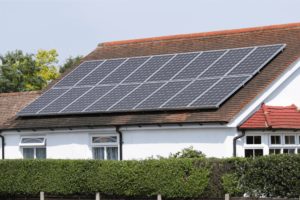
Roof Strength
Not all buildings, especially older ones, have roofs that are strong enough to support solar panels. Buildings constructed after 1970 often feature 'W' framed trussed roofs. Solar panels typically weigh around 20 kg each, and they can easily handle the weight of multiple panels.
While adding cross strengtheners isn't an overly expensive process, it may be necessary for older buildings. Every roof should be inspected, as it may contain termites or woodworms, which can significantly weaken its structure.
Several solar companies offer free roof assessments to determine if your roof is suitable for solar panels.
Types of Solar Panels
Various solar energy systems are available in the market. While photovoltaic systems can generate electricity, solar thermal systems are used solely for heating water.
The two most common types of solar energy systems are monocrystalline silicon panels and polycrystalline silicon panels. Although monocrystalline silicon panels tend to offer slightly higher efficiency than polycrystalline, other factors often outweigh this advantage.
The quality of the solar panels you use greatly influences the output of your PV system. Once installed, a solar PV system can last up to 25 years. Thus, selecting a system from reputable solar companies will ensure smooth operation and minimal maintenance.
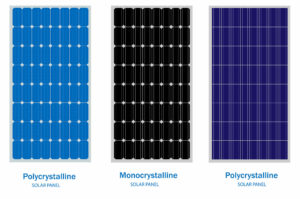
Inverter Requirements
Your solar PV system consists of more than just solar panels; it also includes an inverter. Choosing a high-quality inverter is essential since these devices are often the limiting factor in any solar installation. In most cases, the inverter is the first component in the setup that requires replacement.
The lifespan of an inverter typically ranges from 10 to 15 years. If you're torn between spending more on a high-quality solar panel or a premium inverter, it's usually better to invest in the inverter.
Energy Use
When you choose a qualified solar installer, they will help you track your energy usage. This is crucial in determining the desired output of the solar installation. Understanding your typical energy consumption can help you decide how many solar panels to install and what percentage of your energy needs can be met by solar energy.
Financial Incentives
People interested in setting up solar panels may qualify for financial incentives from the UK government. These incentives aim to make solar-generated electricity competitive with other forms of energy production.
These subsidies can take various forms. The two main types are:
- Investment subsidies, where part of the cost of solar panel installation is partially reimbursed.
- Feed-in tariffs/net metering, which allow you to sell the solar power you generate back to the utility company operating the grid. Here, your panels are connected to the consumer unit, allowing you to earn money from the extra energy produced while reducing your electricity bills.
When deciding if it makes financial sense to install solar panels on your home or business, one of the most important factors to consider is whether your community offers any financial incentives.
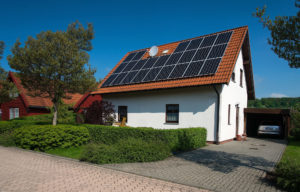
Assessing Your Needs
Power outages are relatively rare in the UK. However, if you have solar panels, don't rely on them to power your house during a blackout. Most solar power systems are connected to the grid using a grid-tied inverter.
Grid operators must shut down the grid for necessary repairs if a blackout occurs. Therefore, even though solar panels are a great investment, you shouldn't count on them to save you in a power outage.
If you want to protect yourself against power outages, you must invest in a battery backup system.
Solar Battery
Most households only use solar panels during the morning and evening, when the sun is shining brightest. However, this doesn't always align with peak power usage, which typically occurs in the evening after the sun has set.
Therefore, it makes both economic and environmental sense to charge a solar battery during the day and consume the stored energy later. This approach allows you to make full use of your solar energy throughout the day and night.
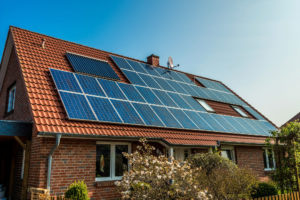
Professional Installer
Once you fully understand the issues outlined above, it's time to select a solar installer. A professional will guide you in the following ways:
- Evaluate your needs
- Help you find the best installation and setup options
- Ensure proper planning permission and paperwork are obtained
- Carry out the installation and make necessary connections
Importantly, installation must be performed by trained professionals. If you hire a service, make sure it's one you can trust.
Case Study: Comprehensive Pre-Installation Assessment for Solar PV System
Background
At Solar Panels Network, we prioritize offering custom solar solutions tailored to our clients' specific needs. This case study highlights the comprehensive pre-installation assessment conducted for a residential property looking to transition to solar energy. Our goal was to ensure a smooth installation process while maximising the system's efficiency and longevity.
Project Overview
The homeowners, living in a suburban area with a mix of modern and older properties, were eager to reduce their energy costs and carbon footprint. They sought a reliable and efficient solar PV system that could meet their daily energy needs while also providing a buffer during peak usage times. Our task was to evaluate the property's suitability for solar panels and design a system that aligned with their energy requirements.
Implementation
To achieve the desired outcome, we took the following steps:
Roof Strength Assessment: Conducted a thorough inspection of the roof's structure to ensure it could support the weight of the solar panels. We identified the need for minor reinforcements due to the building's age.
Selection of Solar Panels and Inverter: Chose high-efficiency monocrystalline silicon panels for their superior performance. Paired these with a premium-grade inverter to optimise energy conversion and system reliability.
Energy Consumption Analysis: Analysed the homeowners' electricity bills and usage patterns to accurately size the solar PV system. This data helped determine the number of panels required and the potential savings.
Financial Incentives and Options: Advised the homeowners on available financial incentives, including the Smart Export Guarantee (SEG) and potential tax benefits, to maximise their investment returns.
Solar Battery Integration: Recommended the inclusion of a lithium-ion battery to store excess energy generated during the day, ensuring a steady power supply during peak evening hours.
Results
- Optimised System Efficiency: The tailored selection of components ensured high efficiency and a robust energy supply, reducing grid dependency by 70%.
- Enhanced Property Value: The installation of high-quality solar panels and an advanced inverter increased the property's value and appeal.
- Long-Term Cost Savings: The system's design and component quality resulted in significant savings on energy bills, providing a quick return on investment.
Summary
This case study demonstrates the importance of a comprehensive pre-installation assessment for solar PV systems. By meticulously evaluating the roof's condition, energy needs, and available financial incentives, we were able to design a system that met the homeowners' goals and exceeded their expectations. At Solar Panels Network, our commitment to delivering high-quality, customised solar solutions ensures that our clients achieve optimal results and long-term benefits from their investment in renewable energy.
Expert Insights From Our Solar Panel Installers About Key Considerations Before Installing Solar PV
One of the most crucial steps before installing solar panels is assessing your roof's structural integrity. Older buildings may require reinforcement to support the additional weight, ensuring a safe and durable installation.
Chief Solar Installation Engineer
Choosing the right type of solar panel and inverter is vital. High-quality inverters not only improve system efficiency but also extend the lifespan of your installation. Investing in these components can make a significant difference in long-term performance.
Senior Renewable Energy Consultant
Understanding your energy consumption patterns is key to determining the size and configuration of your solar PV system. Accurate data on your energy use helps optimise the design for maximum savings and efficiency.
Solar Systems Designer
Discover the Power of Solar with Solar Panels Network
Are you exploring the world of solar installations? Look no further than Solar Panels Network, the UK's trusted partner in harnessing the sun's potential. Our dedication goes beyond just installations; we're on a mission to transform how homeowners and businesses across the UK perceive and utilise energy. By choosing us, you're reducing your carbon footprint and making a smart financial move that promises savings for years to come. Contact us today and embark on your solar journey.
Wrapping Up
Solar technology offers numerous advantages. It's economical, so there's no need to worry about ever paying a high electricity bill again. Thanks to government subsidies and tax incentives, it also has minimal maintenance and installation costs.
Since solar energy releases no harmful pollutants, it will always be considered eco-friendly. Unlike other forms of energy, it does not result in damaging power spikes. It is crucial to emphasise the above points to ensure the solar PV system's best possible performance and efficiency after installation.
About the Author
Solar Panels Network stands at the forefront of solar energy solutions, driven by a team of seasoned solar engineers and energy consultants. With over decades of experience in delivering high-quality solar installations and maintenance, we are committed to promoting sustainable energy through customer-centric, tailored solutions. Our articles reflect this commitment, crafted collaboratively by experts to provide accurate, up-to-date insights into solar technology, ensuring our readers are well-informed and empowered in their solar energy decisions.
